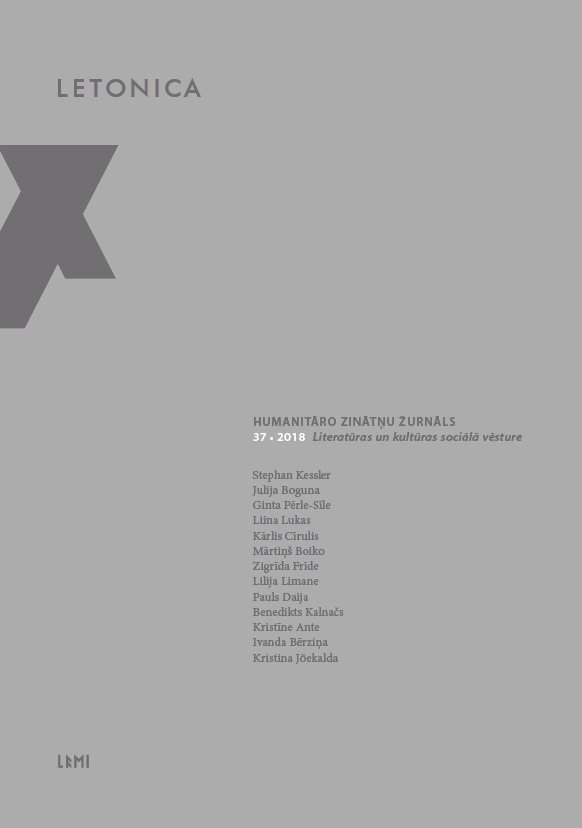Translation and Nation Building: Garlieb Merkel’s “Volk” and Its Canonization in Herrnhutian and Young Latvian Writings
Translation and Nation Building: Garlieb Merkel’s “Volk” and Its Canonization in Herrnhutian and Young Latvian Writings
Author(s): Julija BogunaSubject(s): History, Foreign languages learning, Baltic Languages, Translation Studies
Published by: Latvijas Universitātes Literatūras, folkloras un mākslas institūts
Summary/Abstract: The role of translation in the nation building processes has gained more relevance for Translation Studies in the last decades. Still, this new perspective is not often communicated beyond the designated disciplinary limits and has, therefore, remained unnoticed by historiography and national philology (especially literary history), the disciplines, which are traditionally understood as the ones that question the nation and its ways. These disciplines were constructed and institutionalized in the 19th century during the establishment of the national paradigm itself, thus, being both the subject and object of the nation building. This explains the pre-coined epistemic categories regarding the central status of an authentic original (language, text, author, people etc.). According to this equivalence and originality driven paradigm, translation is conceived as a secondary and epigonic text production with no place in national master narratives. Translation Studies usually do not take the originals into account and national philologies in their turn exclude translations from their scope. This paper intends to show a different perspective on translation and translated texts as an integral and constitutive part of literary history and nation building. By this, it suggests new grounds of discussion for national philologies (Latvian and German Studies) and Translation Studies. It proposes a new reading of the well-known source Latvians by Garlieb Merkel (1796) and traces its translation history to the 19th century, concentrating on the canonization and instrumentalization of Merkel’s concept of the Latvian folk (Volk) and its reception as manifested in translations by Aleksandrs Būmanis (1905) and Jānis Pulans (1800–1820).
Journal: Letonica
- Issue Year: 2018
- Issue No: 37
- Page Range: 21-37
- Page Count: 17
- Language: English

